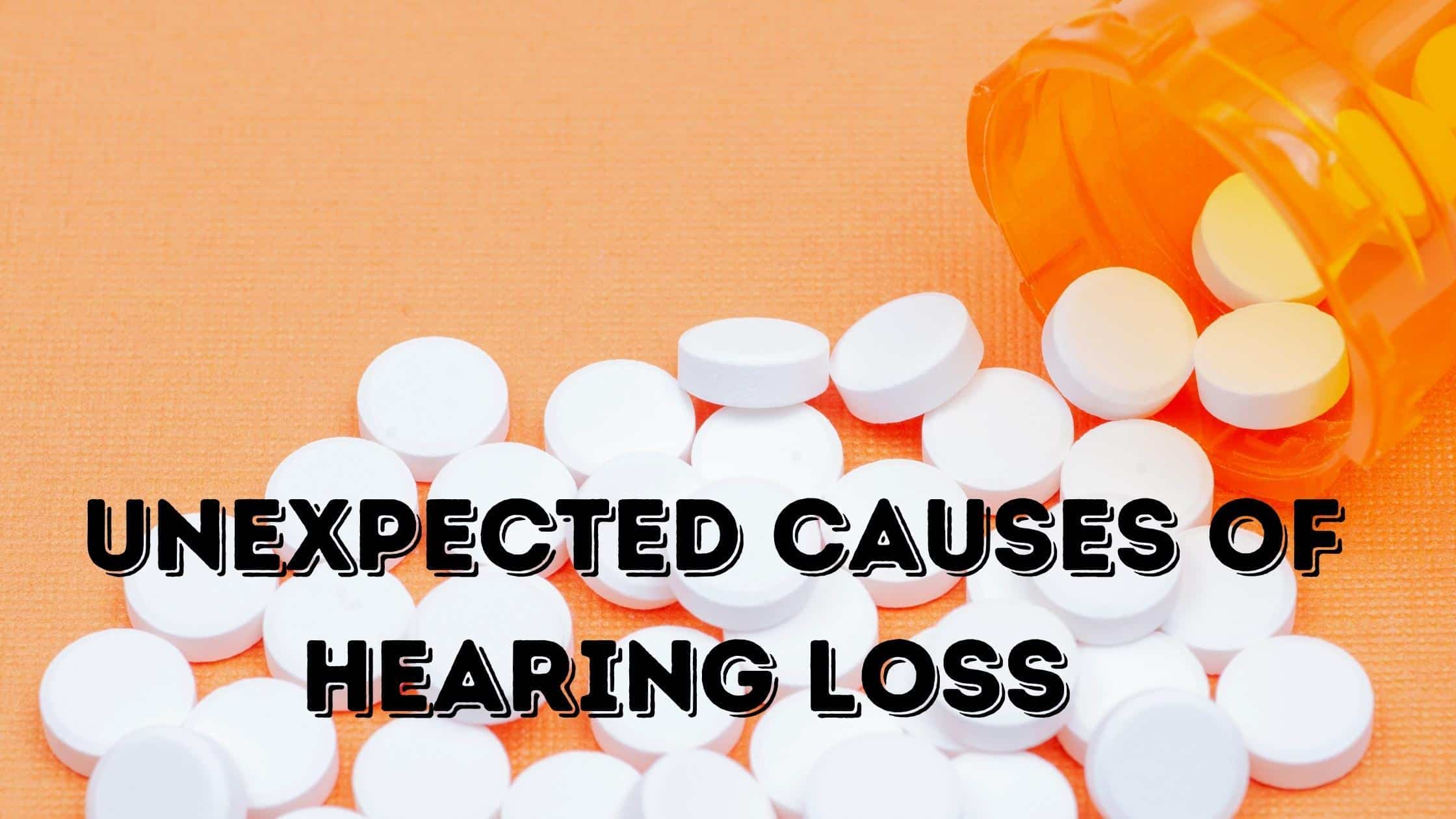
- A Guide to Different Hearing Aid Styles - May 6, 2025
- What is the Lifespan of Hearing Aid Batteries? - April 27, 2025
- Understanding the Different Types of Assistive Listening Technology - April 15, 2025
Hearing loss isn’t one-size fits all. While the onset of hearing loss is most associated with noisy workplaces or aging, in truth, hearing loss can be caused by a multitude of factors. Let’s take a look at a few common sources of hearing damage you may be surprised to consider.
Medication
While there isn’t a wonder drug capable of improving your hearing, there are quite a few medications that have the potential to damage your hearing especially with extended use. Medication with side effects that can permanently or temporarily impair your hearing are known as “ototoxic”. Those on ototoxic drugs should monitor their hearing and undergo a hearing test annually to screen for hearing loss. You should never stop taking a medication or alter your dosage without first talking to your doctor. If you are concerned about ototoxic effects in a drug you are taking, consult with your prescribing physician to see if alternative options are available.
Head and Neck Injury
An injury to the head or neck is a serious medical issue. Alongside many other possible issues, temporary or permanent hearing loss can result from such an accident. Hearing issues can arise upon the occurrence or develop in the aftermath of an impact or injury. Head and neck injuries require immediate medical attention, and should be monitored for developments like hearing loss, tinnitus and other issues indicating hearing damage.
Leisure Activities
It can be easy to associate hearing loss being brought about by noisy workplaces like a loud construction site, or a busy factory floor. However, we are less likely to link hearing loss to leisure events that can be just as detrimental to our hearing. Public events like sports, dance clubs, concerts and fireworks displays can expose you to sustained loud noises and potentially to permanent hearing damage.
Restaurant patrons often tune out the environmental noise of their surroundings without registering how loud it is. A typical busy restaurant easily surpasses 80 dB. Dining establishments that are very large or very busy are more likely to project at around 110 dB, roughly the volume of a rock concert, which can cause permanent hearing damage in under 5 minutes.
Music
Listening to music is one of the most satisfying things about our sense of hearing. Unfortunately, it can also present some of the most common risks for hearing damage. Music played at unhealthy volume levels can cause swift permanent damage to your hearing – damage that ironically limits your capacity for enjoying music in the future.
Music is often presented at dangerously amplified levels. Dance clubs and live concerts frequently immerse their audiences in sounds amplified over 100 dB. At such levels, your hearing is only safe from damage for a few minutes without taking a break from the sound.
Headphones and personal devices are also being acknowledged as a threat. With headphones or earbuds, music can be played directly into the ear canal at dangerous volumes, and bad listening habits like this can go unrecognized until it is too late. The hearing of children and young adults can be specifically vulnerable to this sort of damage.
Infection
The total health of your ear can play a role in your hearing. Ear infections are just such an example. Unaddressed ear infections can cause pain and tinnitus in the ear as well as temporary or permanent hearing loss. In some cases of infection, treatment can eliminate or curtail the hearing issues that arise, making it an important health issue to address.
Transportation
One of the loudest occurrences in most people’s daily lives is also one of the least recognized. Transportation of all types generates a great deal of noise, often at dangerous listening levels. Trains and subway cars can deliver a steady drone of sound around 80 dB, punctuated by noise levels spiking above 105 dB. Busy highway traffic usually presents noise at around 75 dB, but driving with the windows down can increase the noise exposure to closer to 95 dB.
Preventing Hearing Loss
Knowledge is power and part of protecting your hearing is being able to recognize when an issue or noise level may pose a threat to your hearing. Reducing harmful noise exposure and addressing health issues related to hearing loss are two important steps that work alongside regular hearing exams to help you prevent hearing loss and protect your hearing health.
